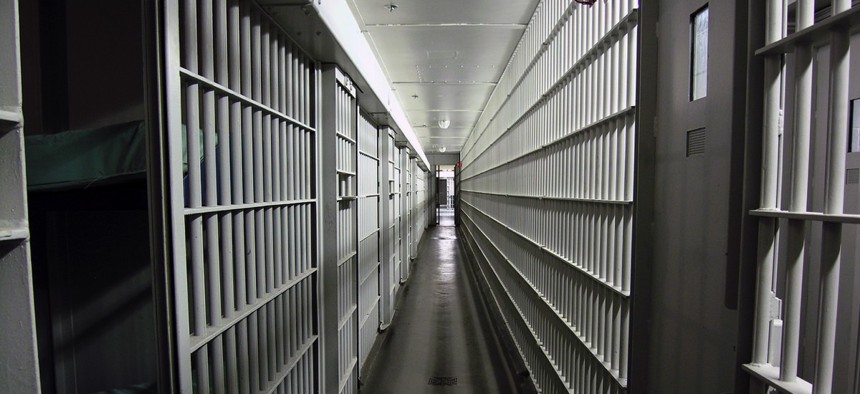National Effort Aims to Tackle Mental Health Issues in County Jails

Shutterstock.com

Connecting state and local government leaders
For the first time there’s a concerted effort to figure out solutions to a complicated problem.
County governments have new allies in reducing the number of people suffering from mental illness in their jails with Tuesday’s launch of the Stepping Up Initiative —if they join the effort.
About 2 million people enter U.S. jails each year with serious mental illnesses like schizophrenia, bipolar disorder and depression, according to the Council of State Governments Justice Center . Many are also are dealing with substance abuse issues from attempts at self-medication.
In most cases, public safety doesn’t improve and government budgets are strained as a result, so the Stepping Up Initiative asks county officials to pass resolutions committing to collecting jailhouse data, developing an action plan and tracking progress with the help of the U.S. Department of Justice’s Bureau of Justice Assistance and other partners .
“It is not an efficient use of taxpayer resources to incarcerate people with mental illnesses because jails are not designed to provide the services and treatments those individuals need,” Maui County, Hawaii, Council member Riki Hokama, who serves as president of the National Association of Counties , said in a statement .
“Counties are stepping up and making remarkable strides to address this challenge, but the problem is more acute than ever,” Hokama said. “This call to action is about learning from one another and using the latest research to implement systems-level, lasting improvements.”
As of Tuesday afternoon, nine counties from Columbia County, Oregon, to Merrimack County, New Hampshire, had passed resolutions and more than 100 individuals signed up to help.
People with mental illnesses stay in jail longer once incarcerated and are at higher risk for re-arrest, the Council of State Governments reported, making them “de facto mental health facilities,” according to National Sheriffs’ Association Executive Director Jonathan Thompson.
Those with mental illnesses cost two-to-three times more to incarcerate, and corrections comprise 20 to 60 percent of county expenses nationwide—necessitating state government involvement.
CSG Executive Committee Chairman Mike Lawlor said “states and counties need to be aligned in how they define severity of mental illness” lest people be referred to services they’re unqualified for.
The aims of the Bureau of Justice Assistance are twofold: improve recovery and reduce recidivism. This will be accomplished in counties through a mixture of community-based treatment, police crisis intervention, specialty courts and reentry planning.
Over time, participating counties will assemble multi-agency teams, gather baseline data to guide decisions, coordinate local mental health and substance abuse services with state funding and laws, and implement and track research-based solutions.
The initiative will provide an online toolkit to guide county governments through the process and serve as an intermediary for sharing best practices—capped by a 2016 national summit in Washington, D.C.
Several counties will be selected for additional grants.
“People with mental illnesses who encounter the criminal justice system need treatment so they are put on a path to recovery,” Dr. Saul Levin, chairman of the American Psychiatric Foundation, said in a statement. “We need to improve the availability of community-based behavioral health care services and we, as providers, must take steps to deliver integrated substance abuse and mental health treatment.”

NEXT STORY: Time is running out: GCN Awards nominations due June 5





